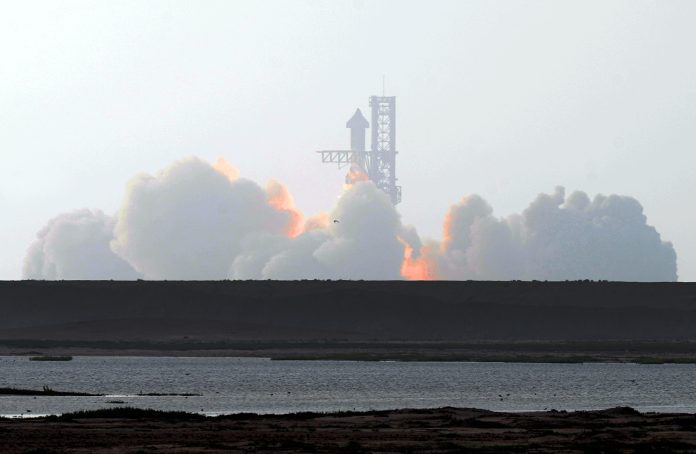
|
Only have a minute? Listen instead
Getting your Trinity Audio player ready...
|
The Federal Aviation Administration and U.S. Fish and Wildlife Service have been hit with new claims related to SpaceX’s April 20 Starship orbital launch attempt from Boca Chica.
Filing new legal claims on Dec. 15 in U.S. District Court in Washington D.C. was a group of national and local environmental organizations: the American Bird Conservancy, Center for Biological Diversity, Save RGV and the Surfrider Foundation. They were joined by the Carrizo/Comecrudo Tribe of Texas Inc., a Flores-based nonprofit.
The groups charge that FAA and USFW failed to “fully analyze and mitigate environmental harm from the April 20 explosion of the SpaceX Starship/Super Heavy rocket and launchpad” before SpaceX was given the green light for a second orbital launch attempt, which took place Nov. 18.
The Starship-Super Heavy did not explode on the pad on April 20 but did explode miles above the Gulf, four minutes after liftoff, when flight-termination systems were activated after the vehicle failed to achieve stage separation and veered out of control. Also, the force of the engines shattered the reinforced-concrete pad, sending pieces flying hundreds of feet in all directions. A cloud of pulverized concrete coated Port Isabel, more than six miles away to the northwest.
The plaintiffs claim that concrete and metal were scattered across roughly 385 acres of “sensitive tidal flats and other habitat for migratory birds and federally protected species,” while nearly three acres of sensitive dune vegetation burned. The Dec. 15 filing comes after the same plaintiffs filed suit on May 1 accusing just the FAA of failing to analyze and mitigation harm from the April 20 launch.
“Despite an ongoing lawsuit, the FAA decided that a supplemental environmental analysis wasn’t warranted,” the plaintiffs state. “The agency also refused to provide an opportunity for public comment before permitting the second launch on Nov. 18. … Today’s complaint also argues that (USFW) failed to address the harm from the April 20 explosion and efforts to recover thousands of chunks of concrete and metal from sensitive tidal flat habitat.”
The lawsuit also alleges USFW failed to address “excessive noise and vibrations from the first launch, including reports that noise levels greatly exceeded what was expected.”
The environmental groups pointed out that the launch site is surrounded by state park and national wildlife refuge land, and serves as important habitat for imperiled wildlife. Jared Margolis, a senior attorney for the Center for Biological Diversity, characterized it as a case of federal regulators “playing Russian roulette with one of the most critical and sensitive habitats for migratory birds in the country.”
Mary Angela Branch, Save RGV board member, said approving rocket test/launch so near wildlife refuge and state park lands was “unconscionable,” and that failure of the FAA and USFW to conduct a full environmental review after the April 20 launch “is pure negligence and exhibits a blatant disregard for our community life.”
The latest complaint also alleges that the FAA relied solely on SpaceX’s investigation of the April 20 incident and appears not to have conducted an independent investigation.
“The FAA only required SpaceX to implement correction actions proposed by the company itself, with no analysis of whether additional or alternative mitigation is necessary to prevent further explosions,” the plaintiffs state.




